 | Alexander Chalmers - 1810 - 292 pages
...would be impossible, ' if it were endeavoured, and would be foolish, if it were possible. What' ever withdraws us from the power of our senses, whatever...distant, or the future, predominate over the present, ad' vances us in the dignity of thinking beings. Far from me and from my ' friends be such frigid philosophy,... | |
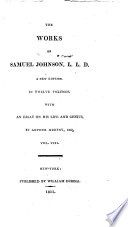 | Samuel Johnson - 1811 - 388 pages
...savage clans and roving barbarians derived the benefits of knowledge, and the blessings of religion. To abstract the mind from all local emotion would...future predominate over the present, advances us in the dignity of thinking beings. Far from me and from my friends be such frigid philosophy, as may conduct... | |
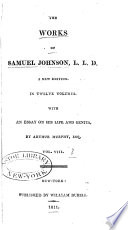 | Samuel Johnson - 1811 - 386 pages
...savage clans and roving barbarians derived the benefits of knowledge, and the blessings of religion. To abstract the mind from all local emotion would...future predominate over the present, advances us in the dignity of thinking beings. Far from me and from my friends be such frigid philosophy, as may conduct... | |
 | James MacDonald (A.M.), Board of Agriculture (Great Britain) - 1811 - 848 pages
...savage clans and roving barbarians derived the benefits of knowledge, and the blessings of religion. To. abstract the mind from all local emotion would...past, the distant, or the future predominate over th» present, advances us in the dignity of thinking beings. Far from me and "from my friends be such... | |
 | 1811 - 1054 pages
...the tomb of Howard. It may be supposed we did not halt with indifference to view the hallowed spot. " To abstract the " mind from all local emotion " would be impossible if it were ," endeavoured, and it would be " fooliih if it were possible. What" everwithdiaws us from die power •" of our senses;... | |
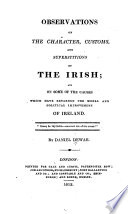 | Daniel Dewar - 1812 - 374 pages
...though far inferior to the songs of other times, it was not useless. " Whatever," says Dr. Johnson, " withdraws us from the power of " our senses ; whatever...predominate over the " present, advances us in the dignity of think" ing beings."* The poetry and sceuldachs of even those degenerate times had this happy... | |
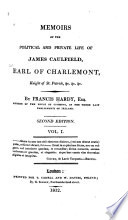 | Francis Hardy - 1812 - 450 pages
...a paucity of ideas, than affectation and false taste in composition, are surely to he laughed at. " To abstract the mind from all local emotion would...endeavoured, and would be foolish if it were possible." So says Johnson, in that truly eloquent passage, (one of the best, perhaps, he ever wrote) and which... | |
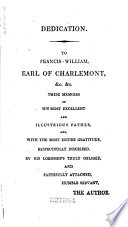 | Francis Hardy - 1812 - 440 pages
...a paucity of ideas, than affectation and false taste in composition, are surely to be laughed at. " To abstract the mind from all local emotion would...endeavoured, and would be foolish if it were possible." So says Johnson, in that truly eloquent passage, (one of the best, perhaps, he ever wrote) and which... | |
 | Henry Kett - 1812 - 500 pages
...savage clans and roving barbarians derived the benefits of knowledge, and the blessings of religion. To abstract the mind from all local emotion would...if it were endeavoured ; and would be foolish, if :t were possible. Whatever withdraws us from the power of our senses, whatever makes the past, the... | |
 | 1812 - 778 pages
...conviction, — •' To abstract the mind from all local emotion, would 1812.] Review of New Publications. be impossible, if it were endeavoured, and would be...foolish, if it were possible ; whatever withdraws tit from the power of our senses, whatever makes the pasl, the distant, or the future predominate over... | |
| |